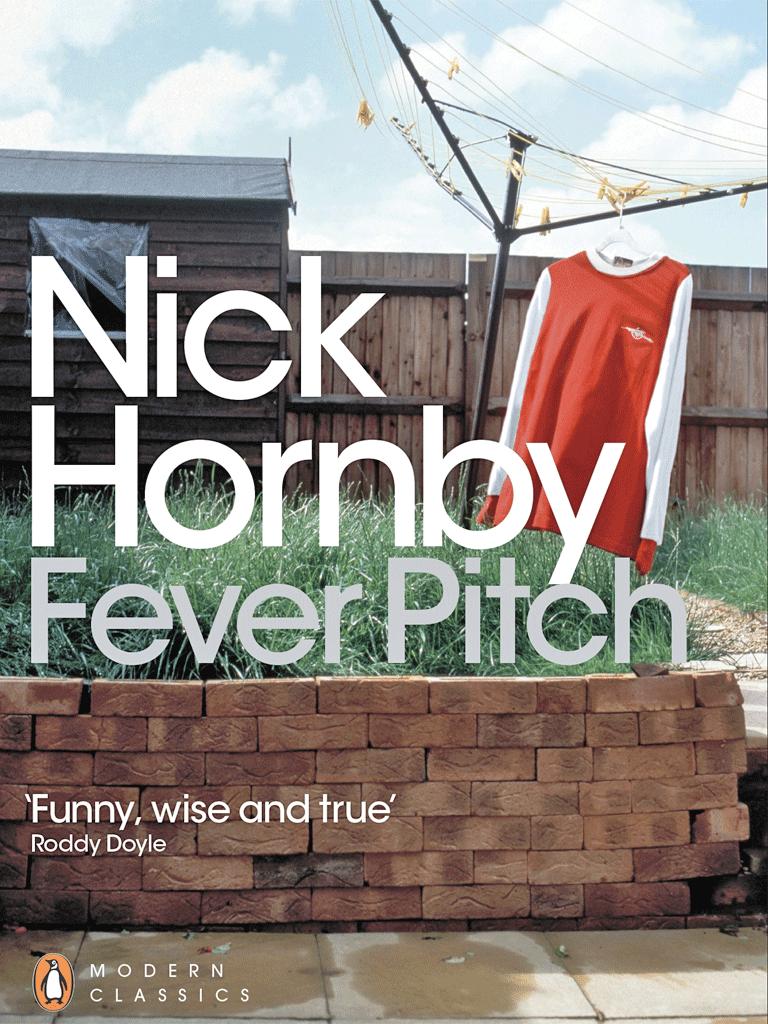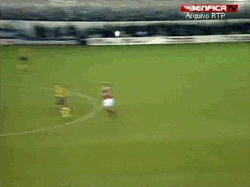
«I fell in love with football as I was later to fall in love
with women: suddenly, inexplicably, uncritically,
giving no thought to the pain or disruption it would
bring with it.
In May '68 (a date with connotations, of course, but I am still more likely to think of Jeff Astle than of Paris), just after my eleventh birthday, my father asking me if I'd like to go with him to the FA Cup Final between West Brom and Everton; a colleague had offered him a couple of tickets. I told him that I wasn't interested in football, not even in the Cup Final - true, as far as I was aware, but perversely I watched the whole match on television anyway. A few weeks later I watched the Man Utd - Benfica game, enthralled, with my mum, and at the end of August I got up early to hear how United had got on in the final of the World Club Championship. I loved Bobby Charlton and George Best (I knew nothing about Denis Law, the third of the Holy Trinity, who had missed the Benfica match through injury) with a passion that had taken me completely by surprise; it lasted three weeks, until my dad took me to Highbury for the first time.
(...)
It is hard for me, and for many of us, to think of years as being self-contained, with a beginning on 1st January and an ending 365 days later. (...) Football fans talk like that: our years, our units of time, run from August to May (June and July don’t really happen, especially in years which end with an odd number and which therefore contain no World Cup or European Championship). Ask us for the best or the worst period in our lives and we will often answer with four figures — 66/67 for Manchester United fans, 67/68 for Manchester City fans, 69/70 for Everton fans, and so on — a silent slash in the middle of them the only concession to the calendar used elsewhere in the western world. We get drunk on New Year’s Eve, just as everyone else does, but really it is after the Cup Final in May that our mental clock is wound back, and we indulge in all the vows and regrets and renewals that ordinary people allow themselves at the end of the conventional year.
(...)
Football is a context where watching becomes doing — not in the aerobic sense, because watching a game, smoking your head off while doing so, drinking after it has finished and eating chips on the way home is unlikely to do you a whole lot of Jane Fonda good, in the way that chuffing up and down a pitch is supposed to. But when there is some kind of triumph, the pleasure does not radiate from the players outwards until it reaches the likes of us at the back of the terraces in a pale and diminished form; our fun is not a watery version of the team’s fun, even though they are the ones that get to score the goals and climb the steps at Wembley to meet Princess Diana. The joy we feel on occasions like this is not a celebration of others’ good fortune, but a celebration of our own; and when there is a disastrous defeat the sorrow that engulfs us is, in effect, self-pity, and anyone who wishes to understand how football is consumed must realise this above all things. The players are merely our representatives, chosen by the manager rather than elected by us, but our representatives nonetheless, and sometimes if you look hard you can see the little poles that join them together, and the handles at the side that enable us to move them. I am a part of the club, just as the club is a part of me; and I say this fully aware that the club exploits me, disregards my views, and treats me shoddily on occasions, so my feeling of organic connection is not built on a muddle-headed and sentimental misunderstanding of how professional football works.
(...)
It worries me, the prospect of dying in mid-season like that, but of course, in all probability I will die sometime between August and May. We have the naive expectation that when we go, we won’t be leaving any loose ends lying around: we will have made our peace with our children, left them happy and stable, and we will have achieved more or less everything that we wanted to with our lives. It’s all nonsense, of course, and football fans contemplating their own mortality know that it is all nonsense. There will be hundreds of loose ends. Maybe we will die the night before our team appears at Wembley, or the day after a European Cup first-leg match, or in the middle of a promotion campaign or a relegation battle, and there is every prospect, according to many theories about the afterlife, that we will not be able to discover the eventual outcome. The whole point about death, metaphorically speaking, is that it is almost bound to occur before the major trophies have been awarded. (...)
I do not wish to die in mid-season but, on the other hand, I am one of those who would, I think, be happy to have my ashes scattered over the Highbury pitch (although I understand that there are restrictions: too many widows contact the club, and there are fears that the turf would not respond kindly to the contents of urn after urn). It would be nice to think that I could hang around inside the stadium in some form, and watch the first team one Saturday, the reserves the next; I would like to feel that my children and grandchildren will be Arsenal fans and that I could watch with them. It doesn’t seem a bad way to spend eternity
(...)
There was a little hiccup at the beginning of the season, but the team had found their form by the time the European Cup started in the middle of September: they crushed the Austrian champions 6-1, a magnificent performance which we believed would scare the rest of the continent rigid. We drew Benfica of Portugal in the next round, and I travelled on one of the two supporters’ club planes to Lisbon, where we hung on for a creditable 1-1 draw in front of eighty thousand Portuguese in the intimidating Stadium of Light. In the return at Highbury, however, we got stuffed, overrun, outplayed, and it was all over, maybe for another twenty years.»
In May '68 (a date with connotations, of course, but I am still more likely to think of Jeff Astle than of Paris), just after my eleventh birthday, my father asking me if I'd like to go with him to the FA Cup Final between West Brom and Everton; a colleague had offered him a couple of tickets. I told him that I wasn't interested in football, not even in the Cup Final - true, as far as I was aware, but perversely I watched the whole match on television anyway. A few weeks later I watched the Man Utd - Benfica game, enthralled, with my mum, and at the end of August I got up early to hear how United had got on in the final of the World Club Championship. I loved Bobby Charlton and George Best (I knew nothing about Denis Law, the third of the Holy Trinity, who had missed the Benfica match through injury) with a passion that had taken me completely by surprise; it lasted three weeks, until my dad took me to Highbury for the first time.
(...)
It is hard for me, and for many of us, to think of years as being self-contained, with a beginning on 1st January and an ending 365 days later. (...) Football fans talk like that: our years, our units of time, run from August to May (June and July don’t really happen, especially in years which end with an odd number and which therefore contain no World Cup or European Championship). Ask us for the best or the worst period in our lives and we will often answer with four figures — 66/67 for Manchester United fans, 67/68 for Manchester City fans, 69/70 for Everton fans, and so on — a silent slash in the middle of them the only concession to the calendar used elsewhere in the western world. We get drunk on New Year’s Eve, just as everyone else does, but really it is after the Cup Final in May that our mental clock is wound back, and we indulge in all the vows and regrets and renewals that ordinary people allow themselves at the end of the conventional year.
(...)
Football is a context where watching becomes doing — not in the aerobic sense, because watching a game, smoking your head off while doing so, drinking after it has finished and eating chips on the way home is unlikely to do you a whole lot of Jane Fonda good, in the way that chuffing up and down a pitch is supposed to. But when there is some kind of triumph, the pleasure does not radiate from the players outwards until it reaches the likes of us at the back of the terraces in a pale and diminished form; our fun is not a watery version of the team’s fun, even though they are the ones that get to score the goals and climb the steps at Wembley to meet Princess Diana. The joy we feel on occasions like this is not a celebration of others’ good fortune, but a celebration of our own; and when there is a disastrous defeat the sorrow that engulfs us is, in effect, self-pity, and anyone who wishes to understand how football is consumed must realise this above all things. The players are merely our representatives, chosen by the manager rather than elected by us, but our representatives nonetheless, and sometimes if you look hard you can see the little poles that join them together, and the handles at the side that enable us to move them. I am a part of the club, just as the club is a part of me; and I say this fully aware that the club exploits me, disregards my views, and treats me shoddily on occasions, so my feeling of organic connection is not built on a muddle-headed and sentimental misunderstanding of how professional football works.
(...)
It worries me, the prospect of dying in mid-season like that, but of course, in all probability I will die sometime between August and May. We have the naive expectation that when we go, we won’t be leaving any loose ends lying around: we will have made our peace with our children, left them happy and stable, and we will have achieved more or less everything that we wanted to with our lives. It’s all nonsense, of course, and football fans contemplating their own mortality know that it is all nonsense. There will be hundreds of loose ends. Maybe we will die the night before our team appears at Wembley, or the day after a European Cup first-leg match, or in the middle of a promotion campaign or a relegation battle, and there is every prospect, according to many theories about the afterlife, that we will not be able to discover the eventual outcome. The whole point about death, metaphorically speaking, is that it is almost bound to occur before the major trophies have been awarded. (...)
I do not wish to die in mid-season but, on the other hand, I am one of those who would, I think, be happy to have my ashes scattered over the Highbury pitch (although I understand that there are restrictions: too many widows contact the club, and there are fears that the turf would not respond kindly to the contents of urn after urn). It would be nice to think that I could hang around inside the stadium in some form, and watch the first team one Saturday, the reserves the next; I would like to feel that my children and grandchildren will be Arsenal fans and that I could watch with them. It doesn’t seem a bad way to spend eternity
(...)
There was a little hiccup at the beginning of the season, but the team had found their form by the time the European Cup started in the middle of September: they crushed the Austrian champions 6-1, a magnificent performance which we believed would scare the rest of the continent rigid. We drew Benfica of Portugal in the next round, and I travelled on one of the two supporters’ club planes to Lisbon, where we hung on for a creditable 1-1 draw in front of eighty thousand Portuguese in the intimidating Stadium of Light. In the return at Highbury, however, we got stuffed, overrun, outplayed, and it was all over, maybe for another twenty years.»
NB: Lembro-me bem deste último jogo. Começámos a perder, mas dois golos do profeta Isaías e um do Kulkov já no prolongamento e a História a apresentar-se toda em Highbury.


Sem comentários:
Enviar um comentário
Are You talkin' to Me ?